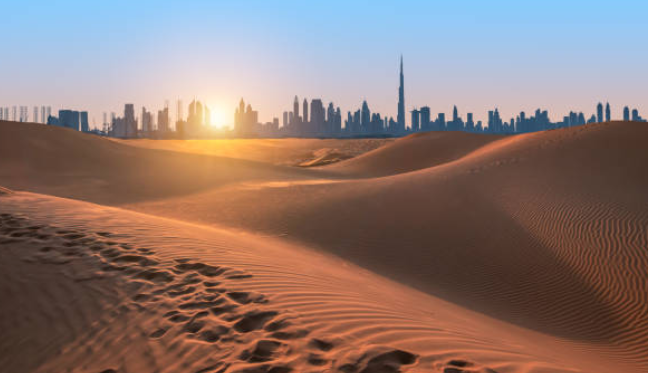
Posted on Tuesday, October 8, 2024
Dubai is renowned for its breathtaking architecture, luxury, and innovation. However, the city also faces significant challenges due to its harsh climate, characterized by extreme temperatures, high UV exposure, and occasional sandstorms. These environmental factors necessitate the use of durable materials in construction and manufacturing, making roll forming technology a vital solution for industries operating in the region.
Roll forming is a manufacturing process that involves continuously feeding metal sheets through a series of rollers to shape them into desired profiles. This technology is celebrated for its precision and efficiency, enabling the production of complex shapes with minimal waste. Unlike traditional fabrication methods, roll forming is ideal for high-volume production, allowing manufacturers to create uniform, high-quality components tailored to specific applications.
One of the key advantages of roll forming technology is its versatility in material selection. In Dubai's challenging climate, materials must withstand corrosion, extreme heat, and UV degradation. Commonly used materials in roll forming include:
These materials not only provide structural integrity but also help maintain the aesthetic appeal of buildings and structures under intense sunlight and heat.
To further enhance the durability of roll-formed products, manufacturers often apply advanced coatings and treatments. Some of the most effective methods include:
These treatments are crucial for ensuring that roll-formed products can endure Dubai's relentless sun and occasional sandstorms.
Several high-profile projects in Dubai have successfully utilized roll forming technology to create structures capable of withstanding the local climate. For example:
These projects highlight how roll forming technology can effectively address the unique challenges posed by Dubai's environment, ensuring longevity and structural integrity.
The future of roll forming technology in Dubai looks promising as advancements continue to emerge. Ongoing research is focusing on developing new materials and coatings that offer even greater resistance to the challenges presented by the climate. Innovations such as smart coatings that can adapt to environmental conditions may soon become integral to roll forming processes.
Moreover, as sustainability becomes a priority in construction, roll forming's ability to minimize waste and use recyclable materials positions it favorably in an evolving industry landscape.
Adapting roll forming technology to meet the demands of Dubai’s harsh climate is essential for ensuring the longevity and reliability of construction materials. By selecting the right materials, applying innovative coatings, and leveraging the precision of roll forming, manufacturers can produce durable components that stand up to extreme temperatures, high UV exposure, and sandstorms. As the industry continues to innovate, roll forming will play a crucial role in shaping the future of construction in Dubai and beyond.

Used Purlin Roll Forming Machines for Sale Worldwide
Posted on Sunday, January 25, 2026
Pre-Owned Roll Forming Machines for Purlin & Structural Steel Profiles

Used Roof Panel Roll Forming Machines for Sale Worldwide
Posted on Sunday, January 25, 2026
Pre-Owned Roll Forming Machines for Roofing Panel Production

Used Roll Forming Machines for Sale Worldwide
Posted on Tuesday, January 20, 2026
Pre-Owned Roll Forming Machines with Inspection, Verification & Global Support

Steel Coil Supply for Roll Forming Machines Worldwide
Posted on Tuesday, January 20, 2026
Reliable Steel Coil Supply for Roll Forming, Fabrication & Manufacturing Applications
Copyright 2026 © Machine Matcher.